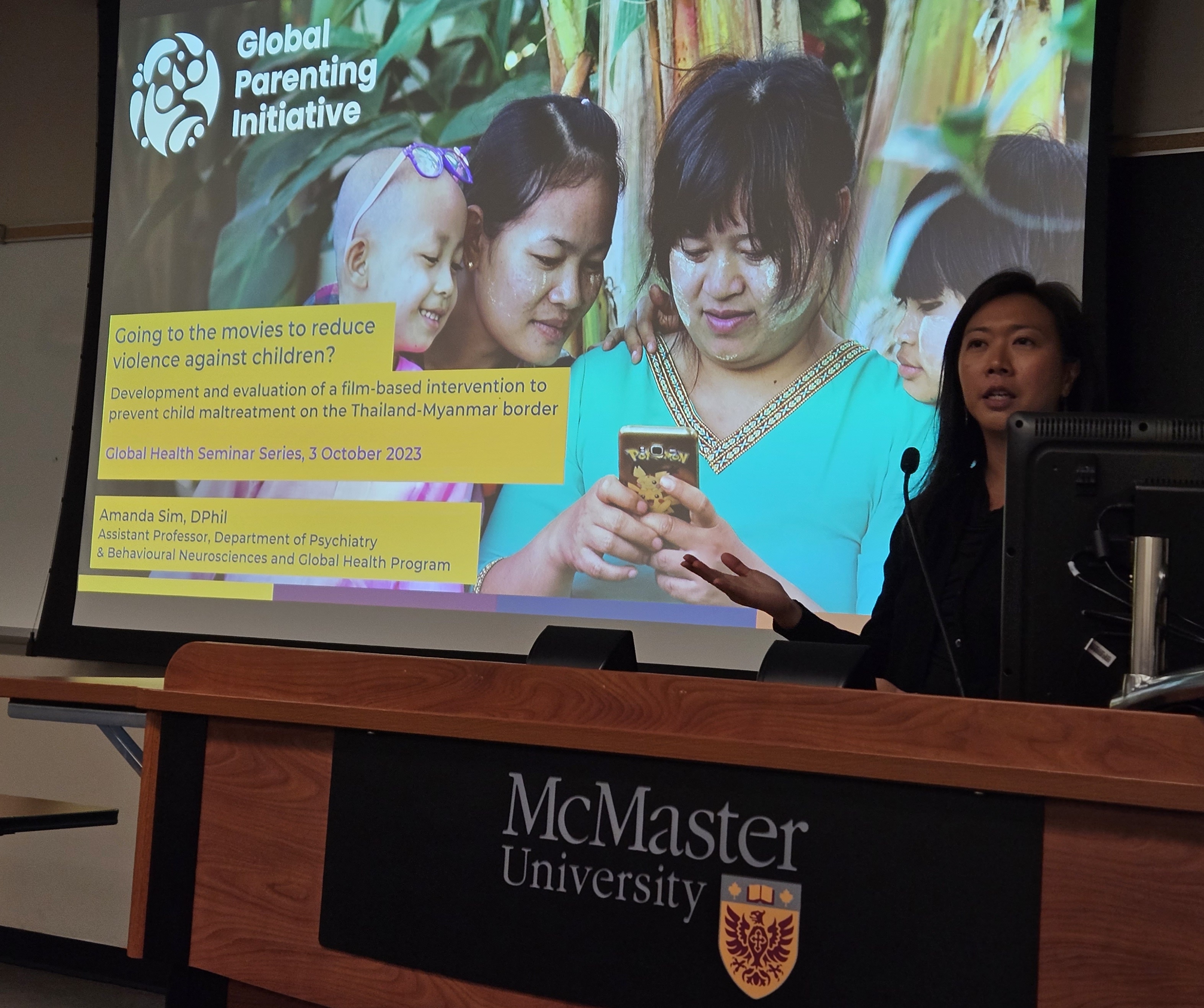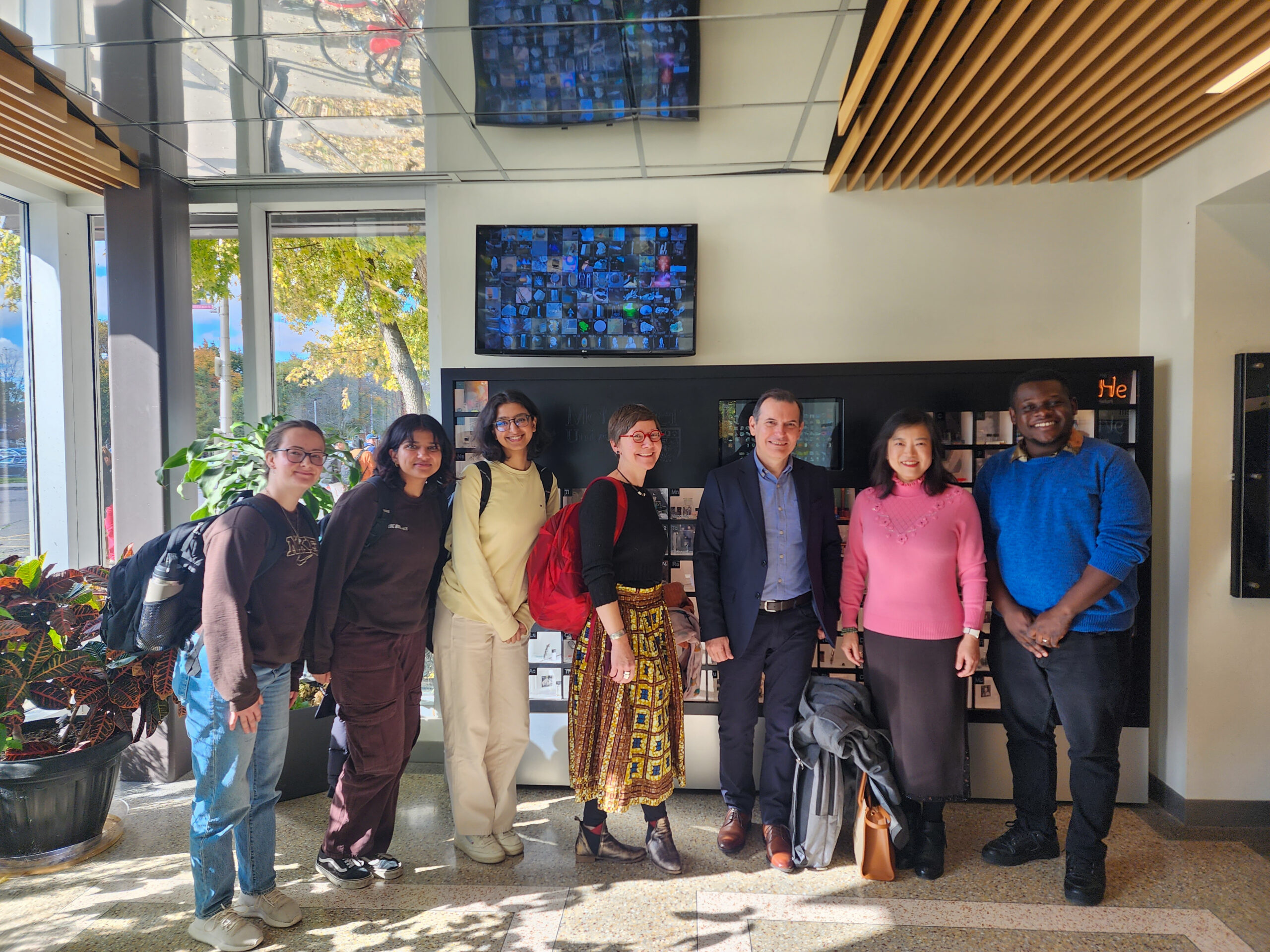A film-based intervention to address emerging needs and issues for parents/caregivers and children at the Thailand/Myanmar border

The Global Health Seminar Series that took place on October 3rd, 2023, featured Dr. Amanda Sim, Assistant Professor in the department of Psychiatry and Behavioural Neurosciences at McMaster University. Dr. Sim’s seminar titled Going to the movies to reduce violence against children: A film-based intervention at the Thailand Myanmar border was thought provoking.
Dr. Sim spent 10 years working with the International Rescue Committee (IRC) in Afghanistan and various countries implementing health protection and development programs. She then transitioned into working in research and evaluation, with a focus on understanding the impact of these program interventions such as film-based interventions at the Thailand Myanmar border.
Throughout the seminar, Dr. Sim discussed the Global Parenting Initiative that took place at the Thailand and Myanmar border, the impact of refugee and immigration issues, and how this impacted children and their families. She provided statistics showing the scale and the scope of the problem of violence against children as a global crisis.
When thinking about global health issues, violence against children might not be the initial concern that crosses one’s mind. Nonetheless, a staggering three out of every four children, totalling 300 million children worldwide aged 2-4 years old, routinely experience physical and psychological abuse from their parents or caregivers (UNICEF, 2022).
The statistics provided by UNICEF and the World Health Organization (WHO) underscore the profound and enduring consequences of child abuse, including physical injuries, engagement in risky sexual behaviours, and mental health issues. This form of violence affects both children and adults, with instances of physical, emotional, and sexual abuse making them seven times more likely to be victimized compared to typical adults. Furthermore, these individuals are 30 times more likely to attempt suicide, illustrating the profound and lasting impact of such abuse (UNICEF, 2022).
UNICEF, along with the WHO and various international organizations, have formulated recommendations and tactics for governments worldwide to tackle and put an end to violence against children. When applied in humanitarian contexts, research indicates that offering parents and caregivers health education and skills training can indeed produce positive effects on both parents and the overall family situation, resulting in a decrease in violence against children.
The issue of violence against children warrants significant attention within the field of global health since it represents a problem of global health magnitude. Child abuse and neglect have far-reaching and long-lasting effects on individuals, both physically and psychologically, as well as on society.
Reference:
https://www.unicef.org/protection/violence-against-children
Please join us on Tuesday, October 31 for our upcoming Global Health Seminar featuring Dr. Michelle A Williams.
Student BlogRelated News
News Listing

November 12, 2024

November 5, 2024

Pollution, Power, and Protest: Unpacking Environmental Racism from Africville to Wet’suwet’en
Student Blog
October 10, 2024
